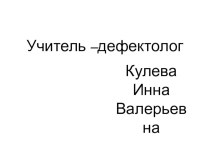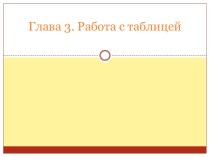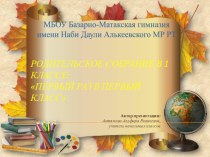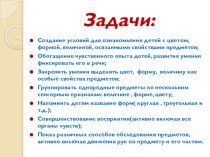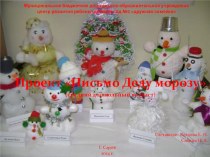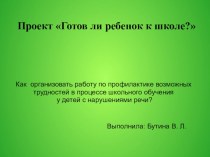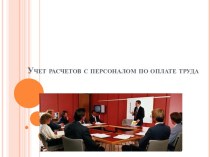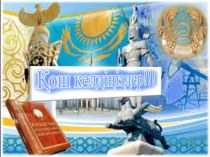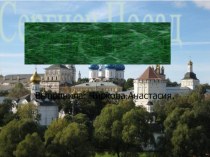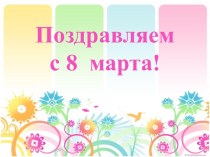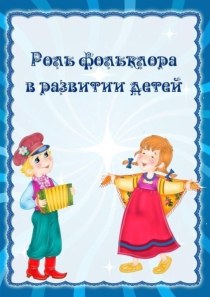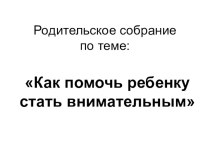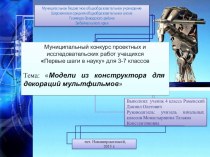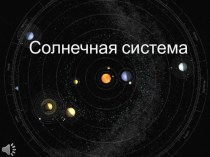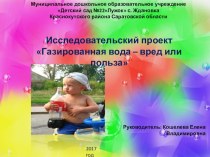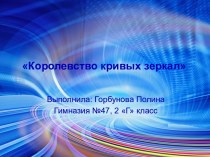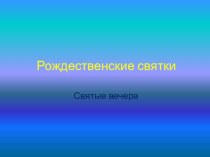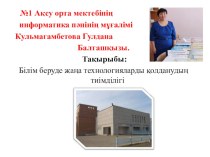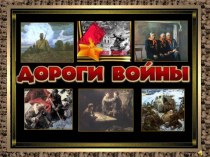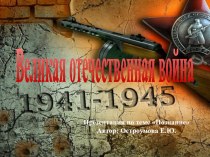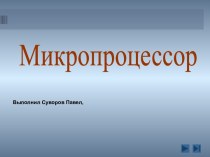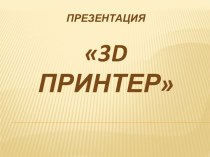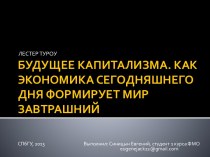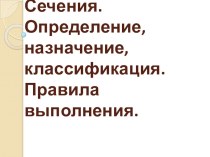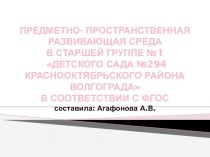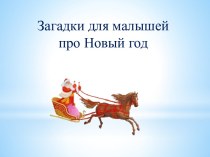- Главная
- Разное
- Бизнес и предпринимательство
- Образование
- Развлечения
- Государство
- Спорт
- Графика
- Культурология
- Еда и кулинария
- Лингвистика
- Религиоведение
- Черчение
- Физкультура
- ИЗО
- Психология
- Социология
- Английский язык
- Астрономия
- Алгебра
- Биология
- География
- Геометрия
- Детские презентации
- Информатика
- История
- Литература
- Маркетинг
- Математика
- Медицина
- Менеджмент
- Музыка
- МХК
- Немецкий язык
- ОБЖ
- Обществознание
- Окружающий мир
- Педагогика
- Русский язык
- Технология
- Физика
- Философия
- Химия
- Шаблоны, картинки для презентаций
- Экология
- Экономика
- Юриспруденция
Что такое findslide.org?
FindSlide.org - это сайт презентаций, докладов, шаблонов в формате PowerPoint.
Обратная связь
Email: Нажмите что бы посмотреть
Презентация на тему Robert burns(1759-1796),the national scottish poet or, the bard
Содержание
- 2. The Son of ScotlandWalter Scott: “…the most
- 3. The Son of ScotlandWalter Scott: “I think
- 4. Robert Burns, a representative of Pre-Romanticism Interests
- 5. Enduring AppealAfter his death Burns became an
- 6. Collector of Folk SongsCollected folk songs from
- 7. Auld Lang Syne
- 8. Auld Lang Syne
- 9. Scots Wha Hae
- 10. Scots Wha Hae
- 11. My Heart’s in the HighlandsFarewell to the
- 12. My Heart’s in the HighlandsFarewell to the
- 13. Philosophic and Love LyricsOther poems and songs
- 14. John BarleycornThere was three kings into the
- 15. John BarleycornThe sultry suns of Summer came,And
- 16. John BarleycornThey've taen a weapon, long and
- 17. John BarleycornThey wasted, o'er a scorching flame,The
- 18. John Barleycorn'Twill make a man forget his
- 20. Literary ThemesRepublicanism (the French revolution influence) and
- 21. Literary Style His direct literary influences in
- 22. William Blake(1757 - 1827)
- 23. Blake’s political viewsBlake never tried to fit
- 24. Blake’s literary achievements A symbolist, or a
- 25. Blake’s life and careergot no education
- 26. Main worksPoetic collections: Songs of Innocence
- 27. Blake’s Romantic ManifestoTo see a world in
- 28. Blake’s Illuminated Engravings
- 29. Blake’s Illuminated Engravings Elohim creating Adam 1795
- 30. Blake’s Illuminated Engravings
- 31. Blake’s Illuminated Engravings “Ancient of Days”
- 32. Blake’s Illuminated Engravings The Great Red Dragon and the Women Clothed with the Sun
- 33. Blake’s Illuminated Engravings “Michael Binding Satan”
- 34. Blake’s Illuminated Engravings
- 35. The Marriage of Heaven and Hell
- 36. The Marriage of Heaven and Hell
- 37. The Laocoön Good & Evil are
- 38. The Laocoön … The Old &
- 39. The Laocoön …. Practise is Art
- 40. All Religions Are One The Voice
- 41. All Religions Are One PRINCIPLE 3d
- 42. Скачать презентацию
- 43. Похожие презентации
The Son of ScotlandWalter Scott: “…the most extraordinary of all the men…the most talented poet of Scotland”; : “His person was strong and robust; his
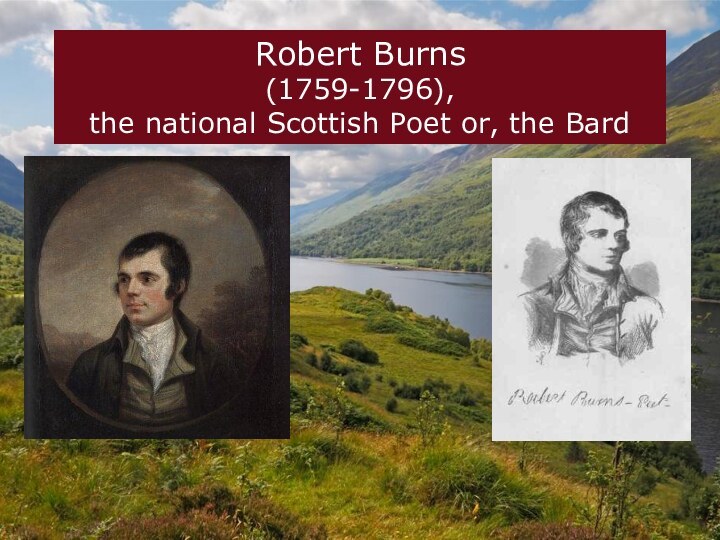
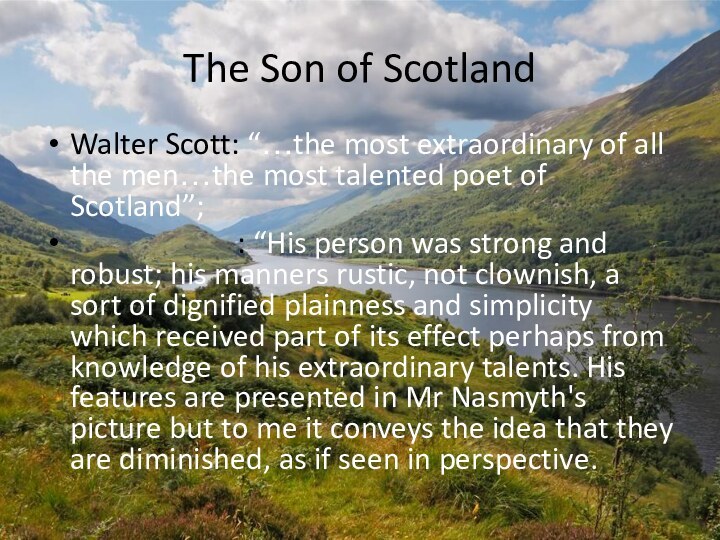
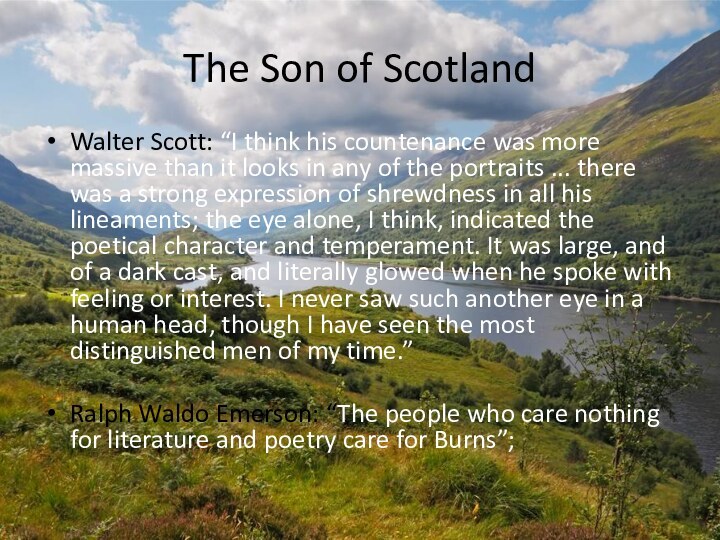
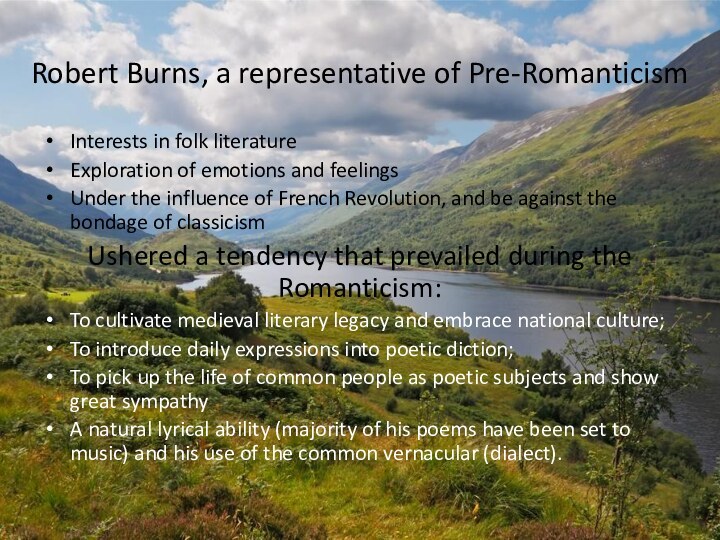
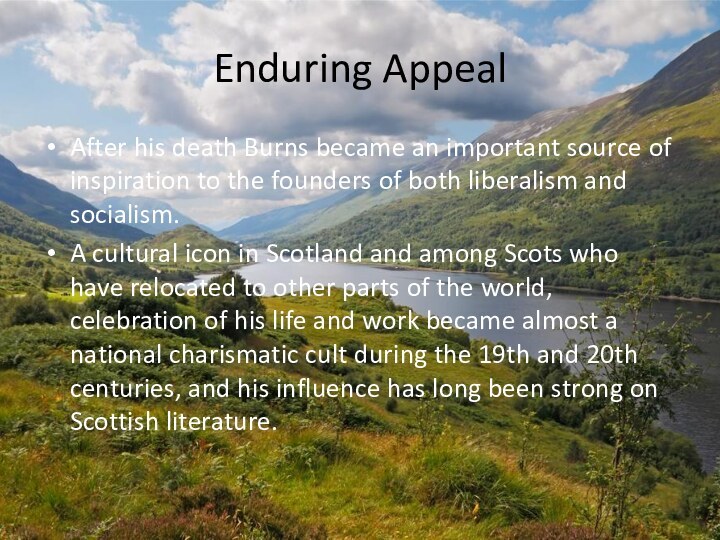
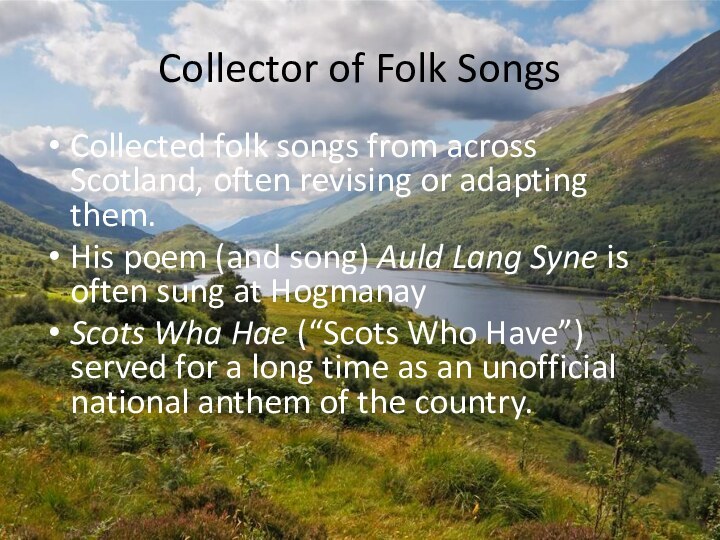
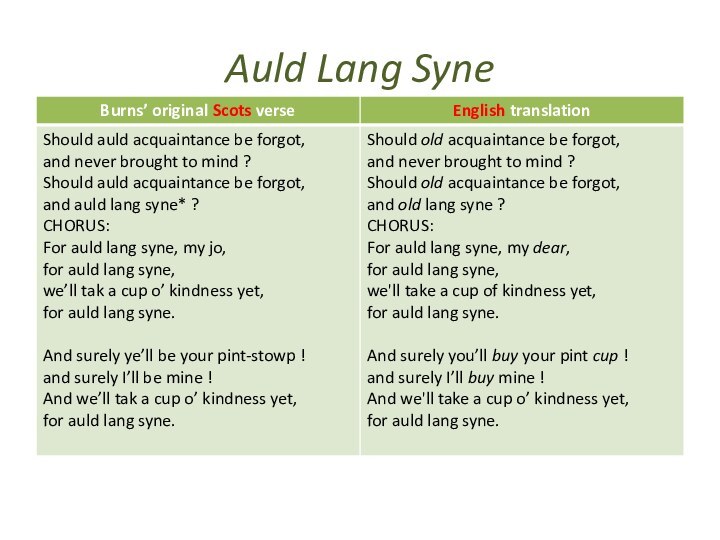
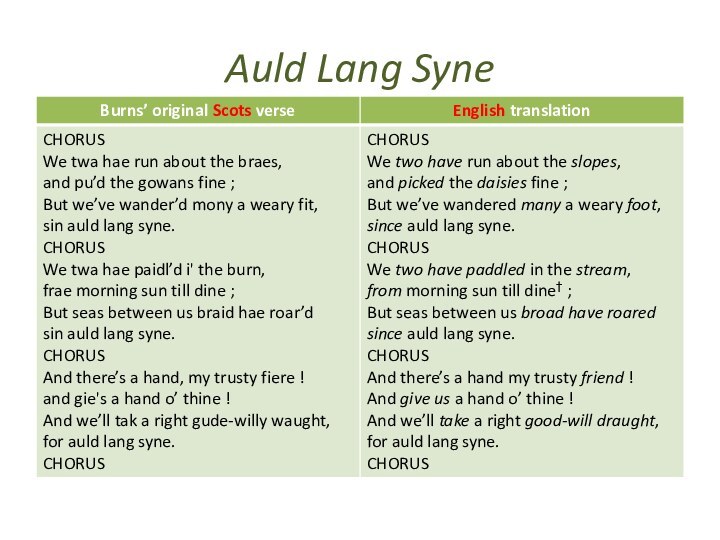
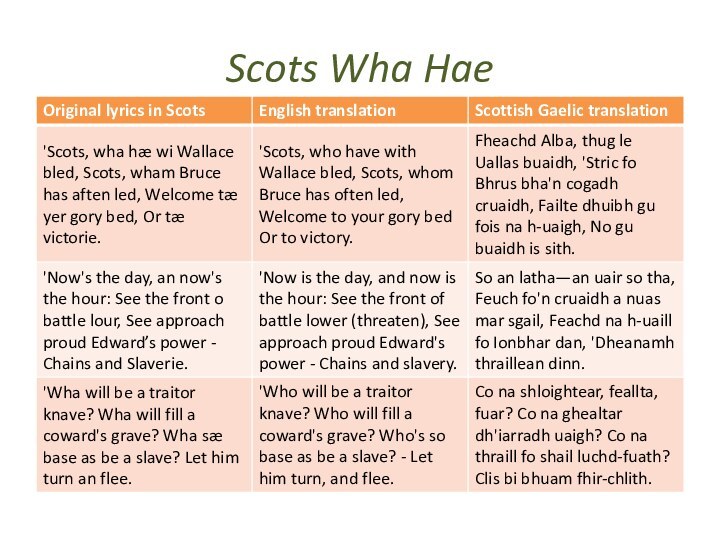
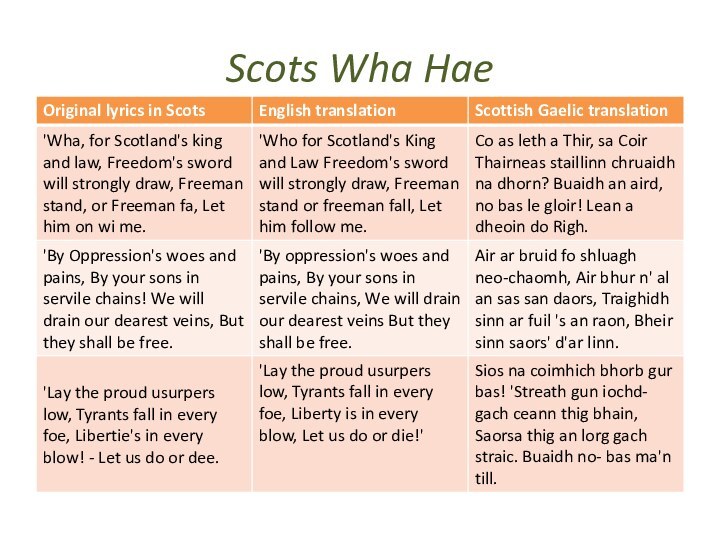
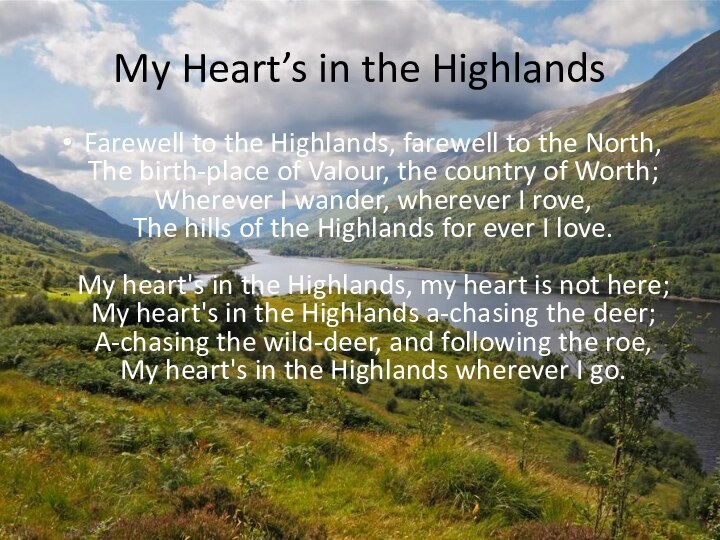
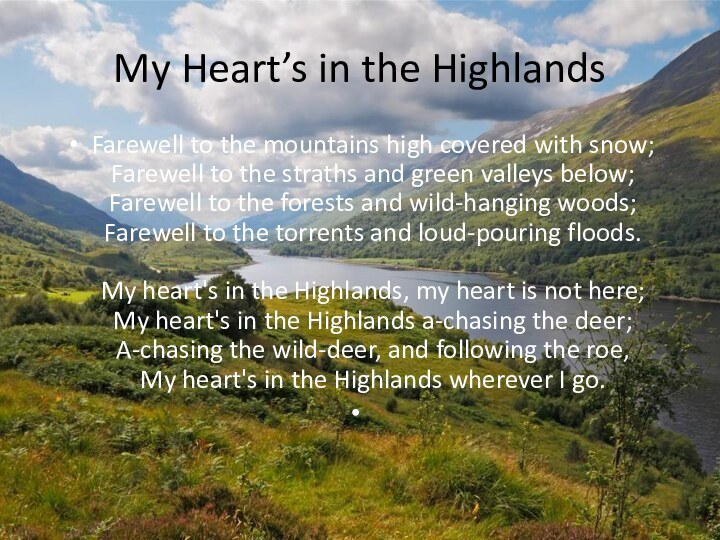
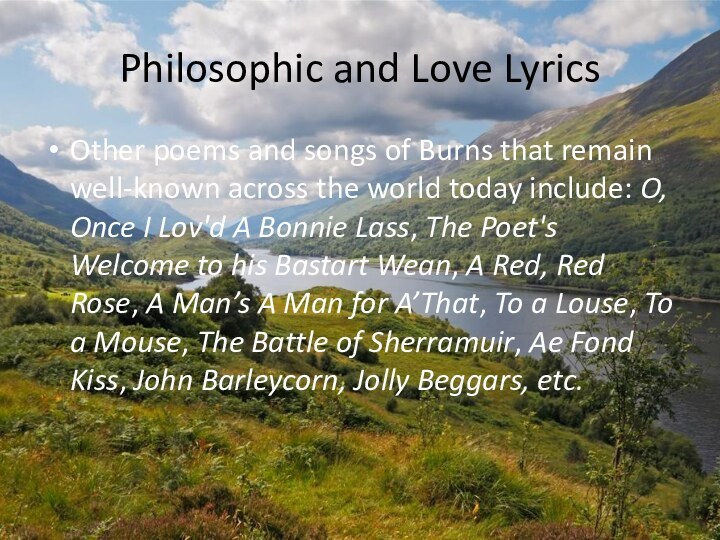
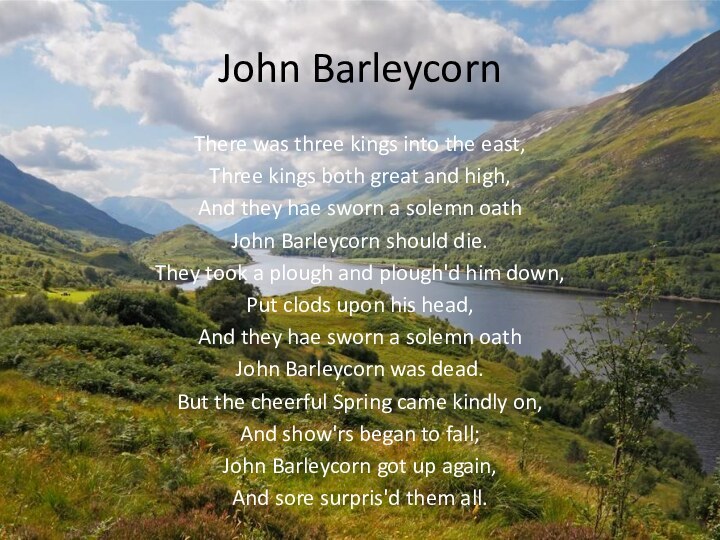
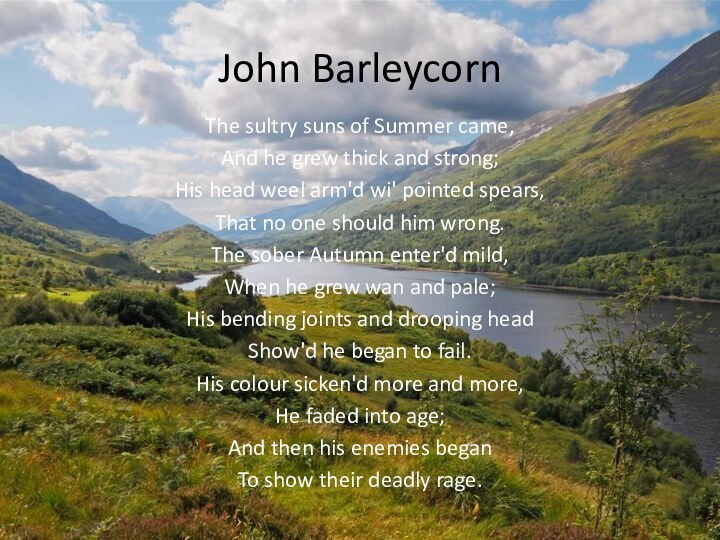
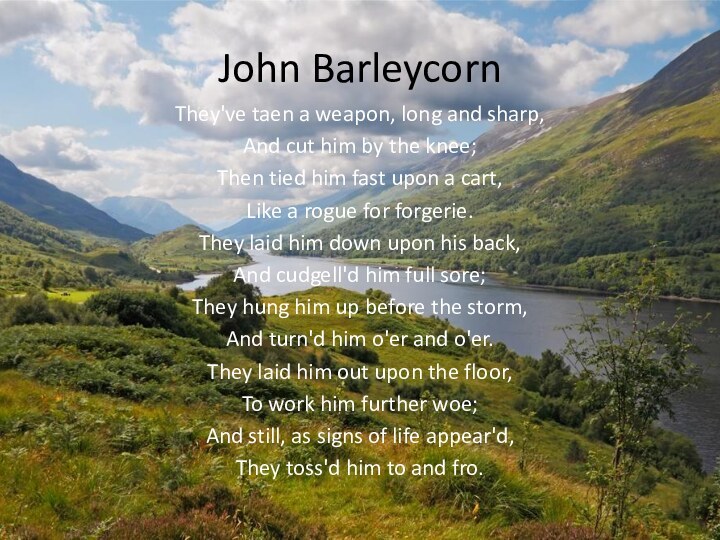
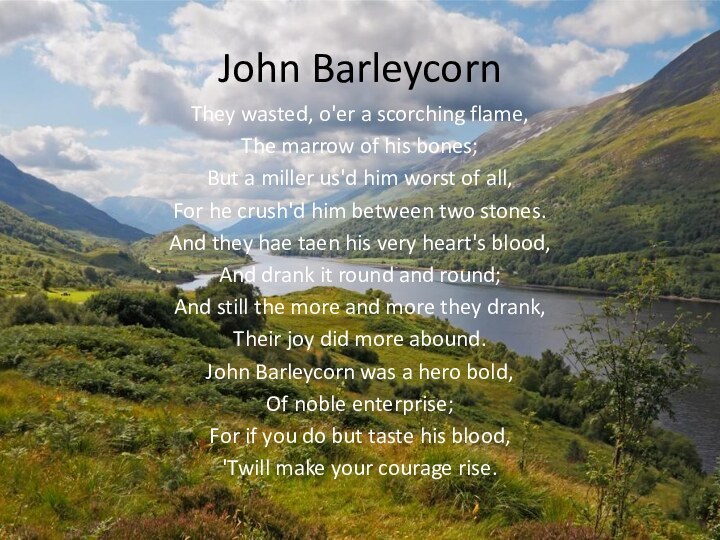
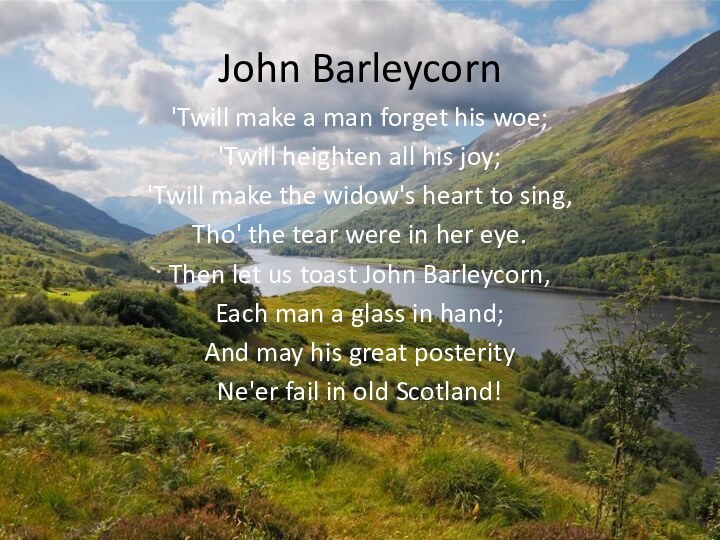
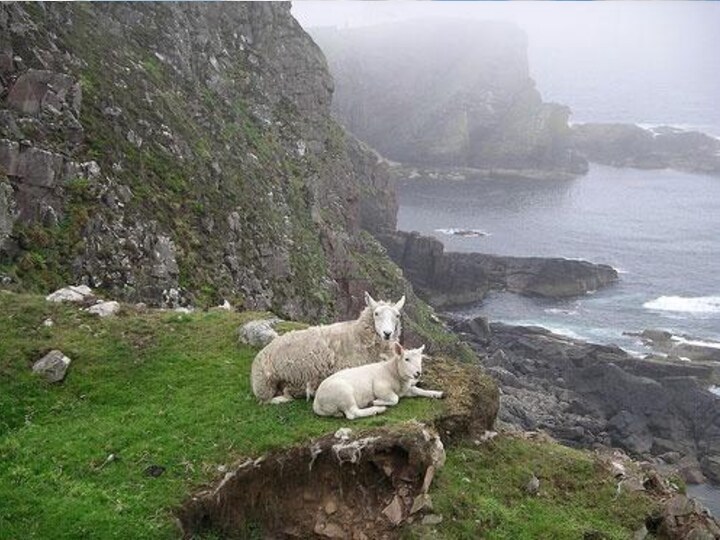
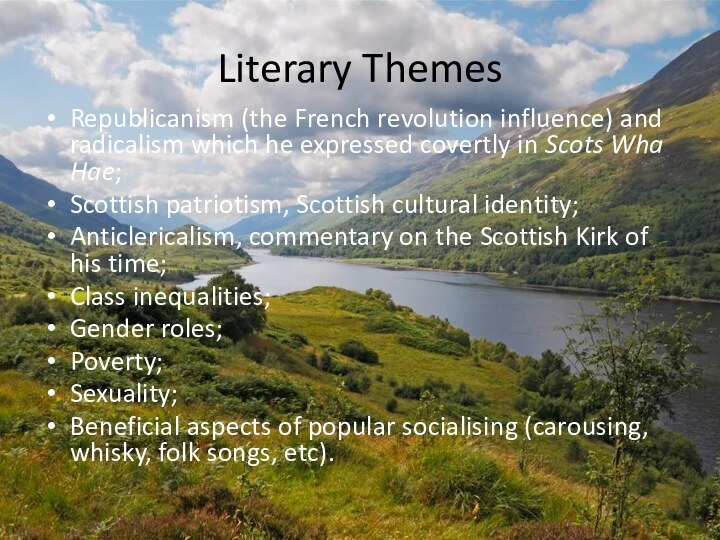
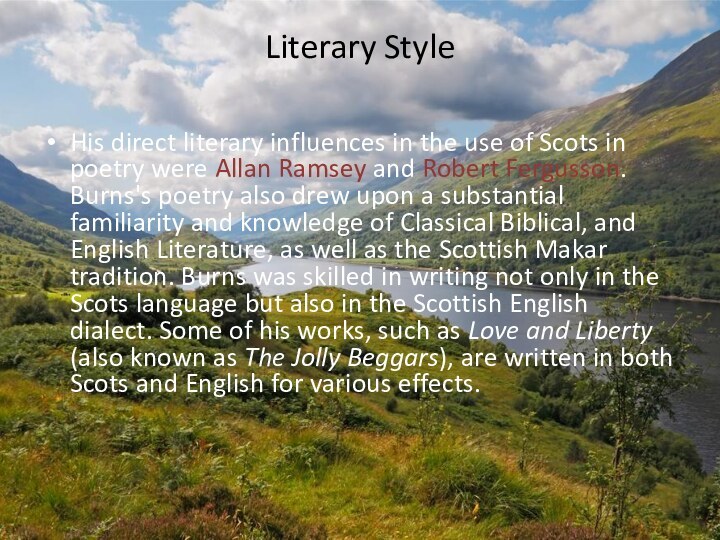
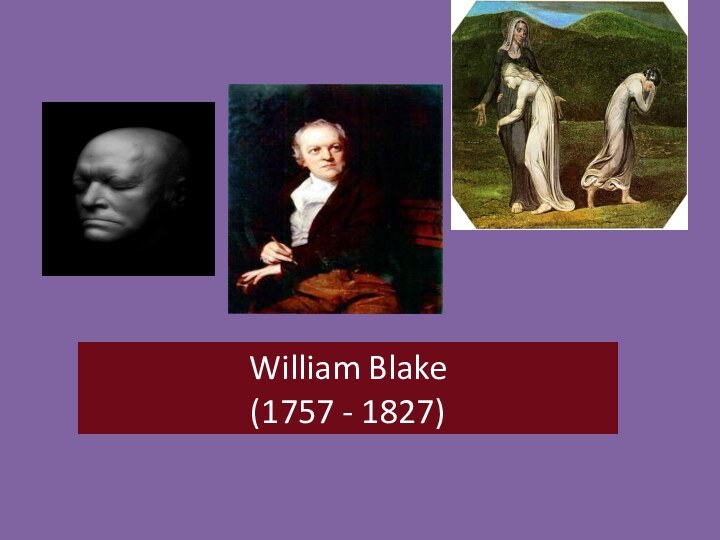
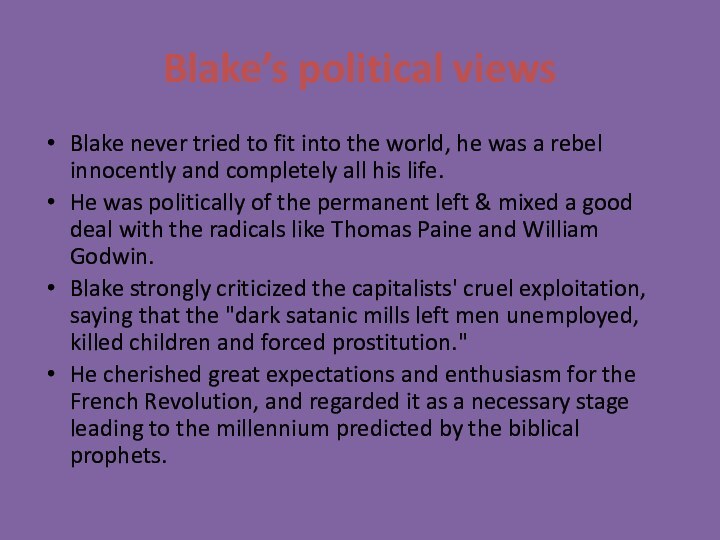
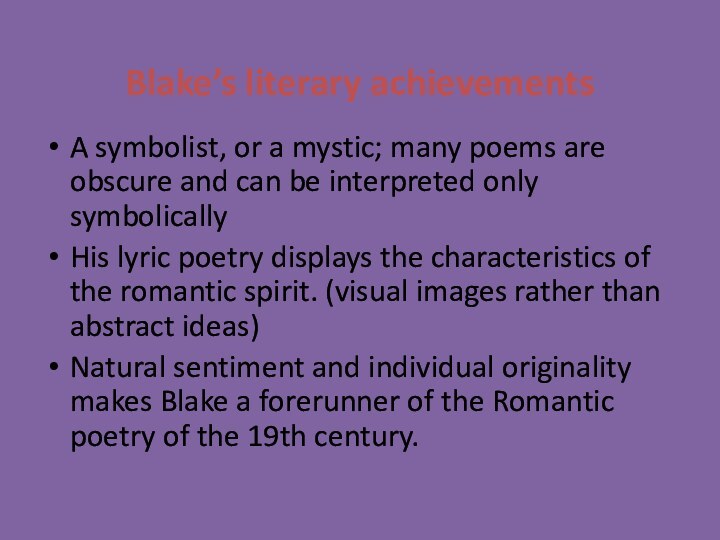
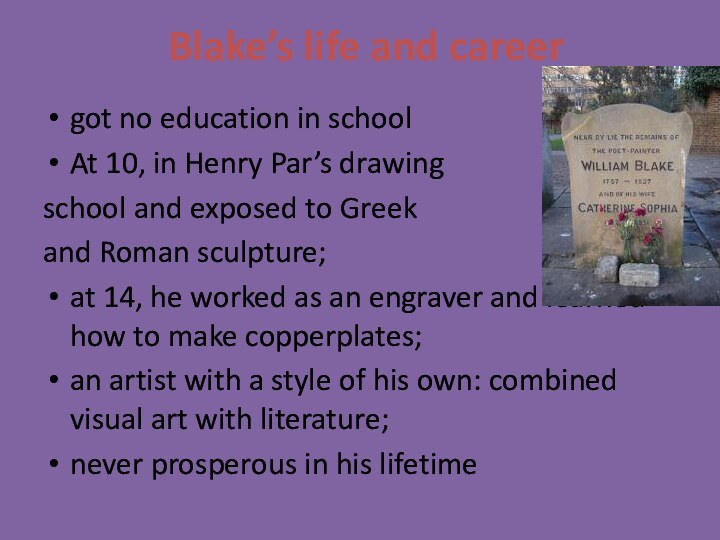
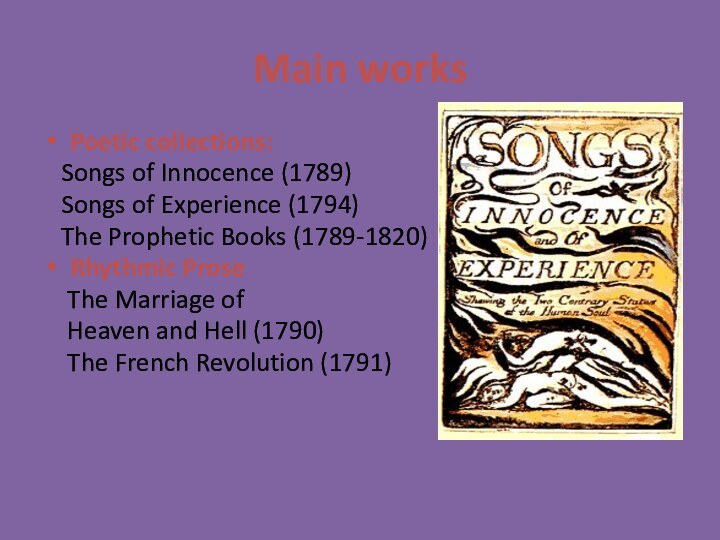
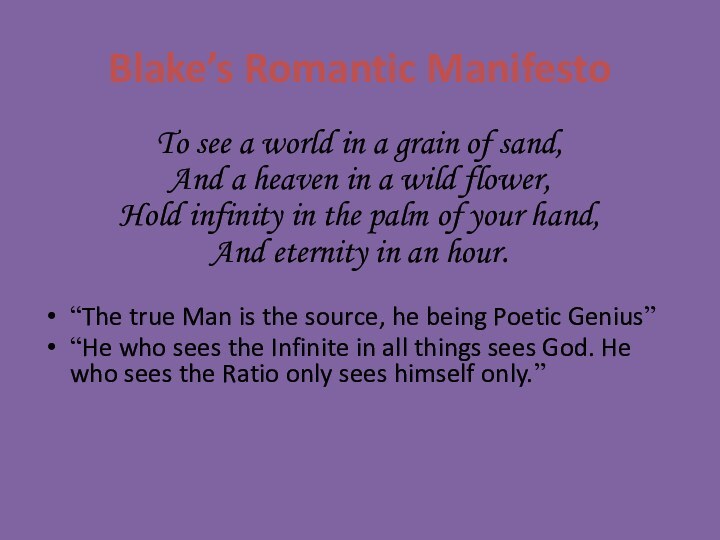
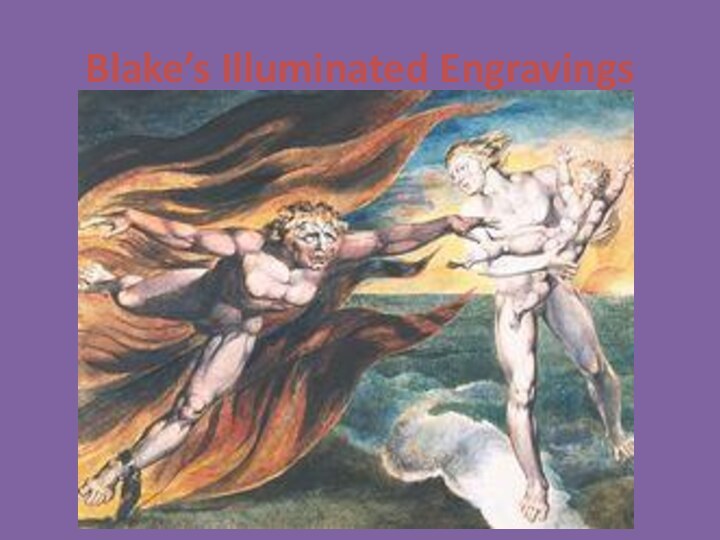
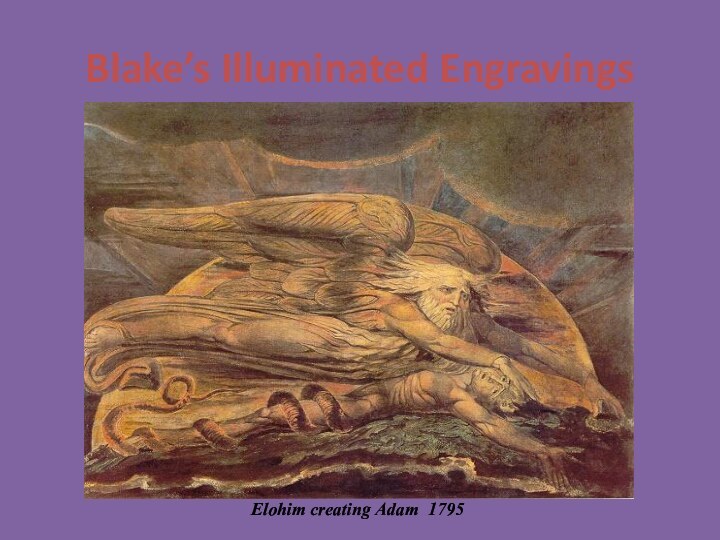
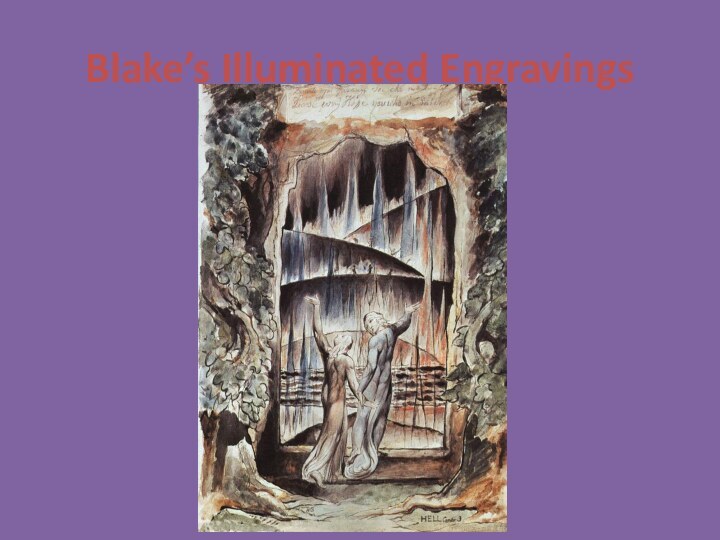
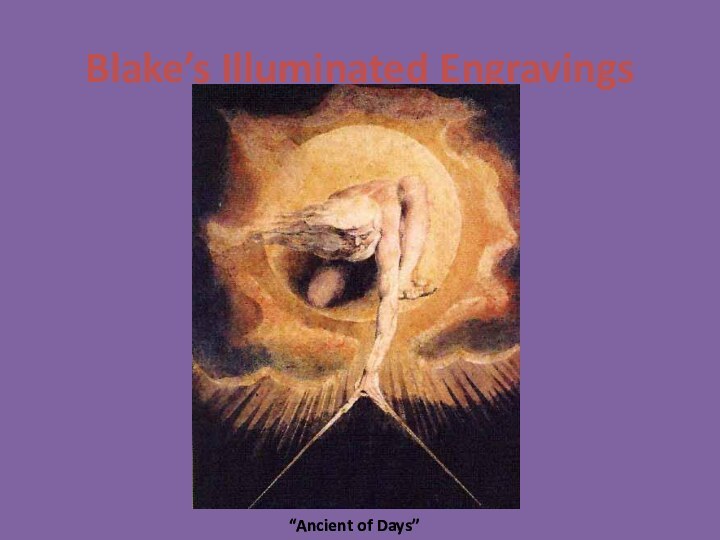
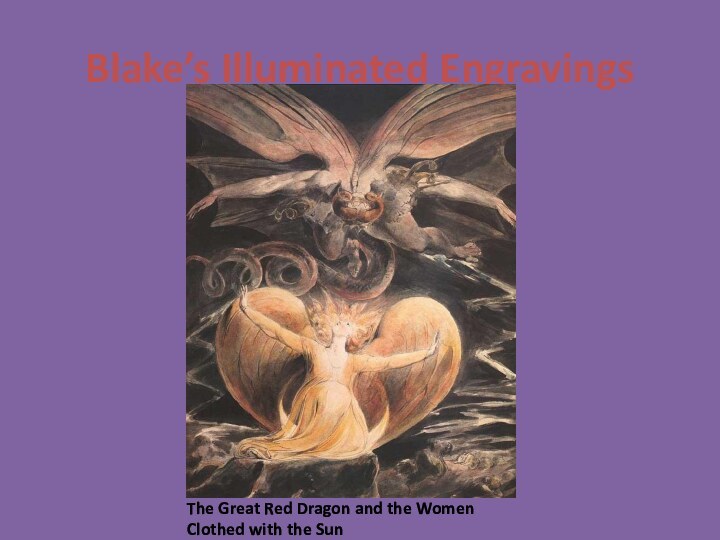
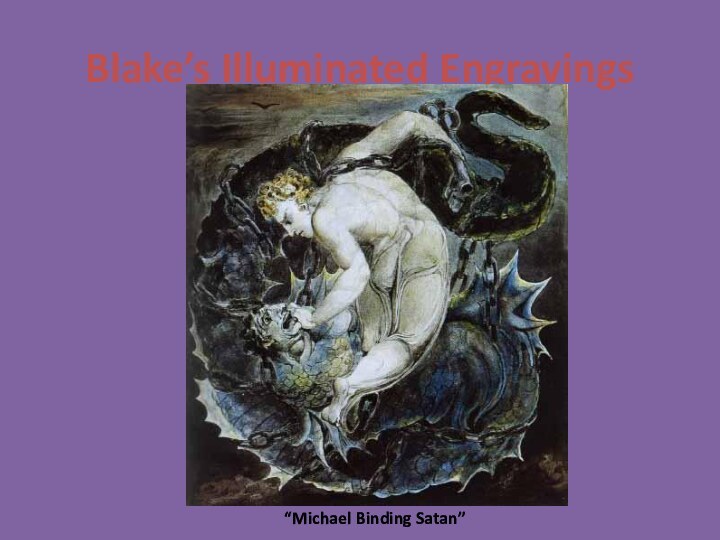
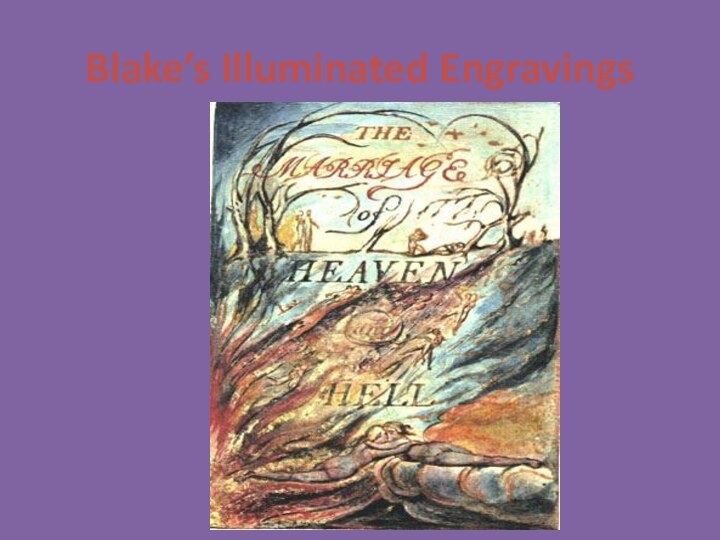
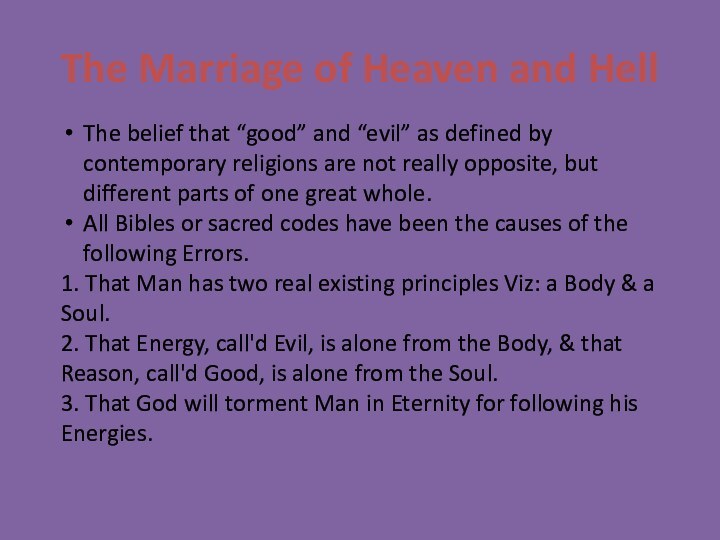
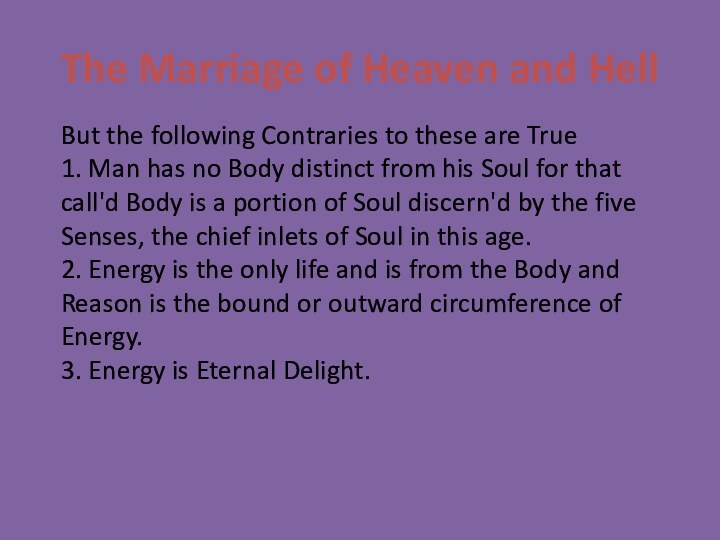
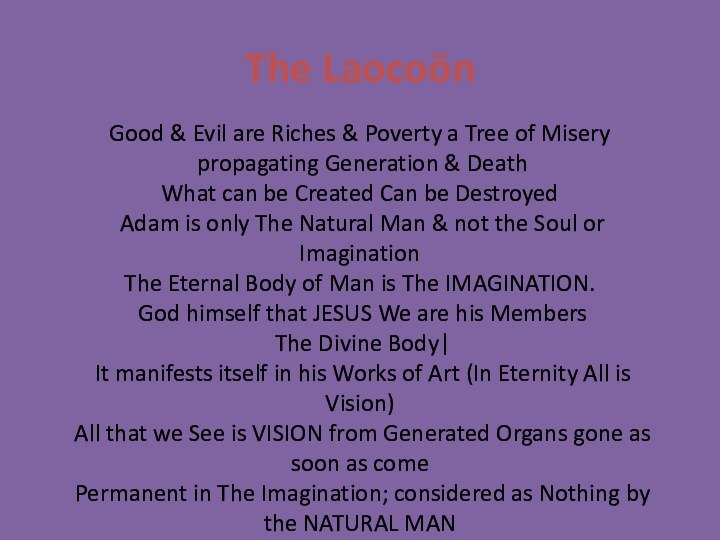
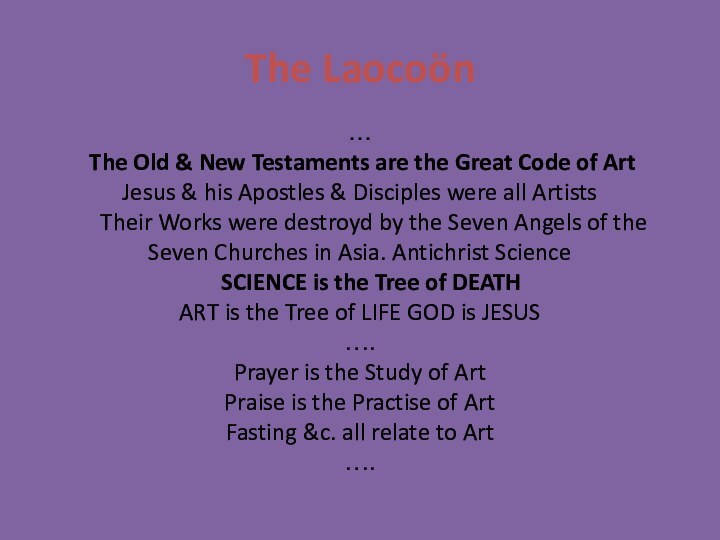
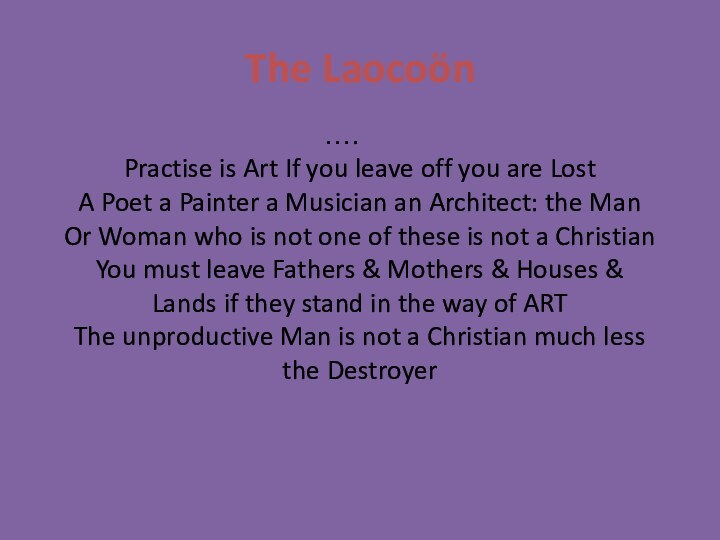
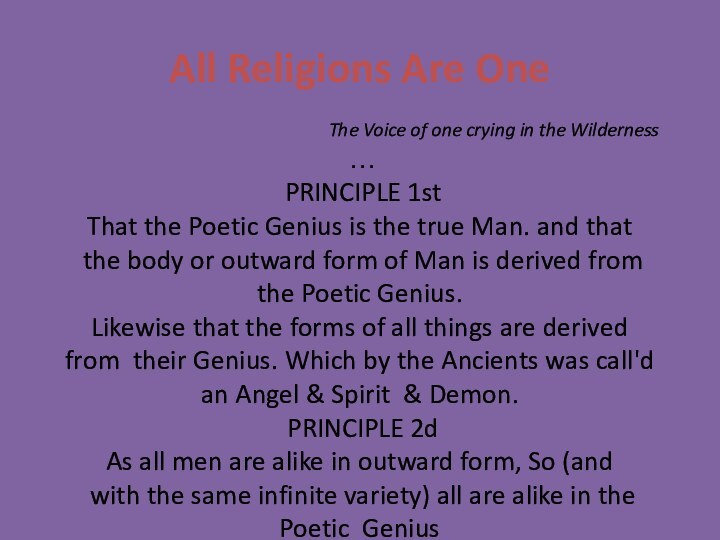
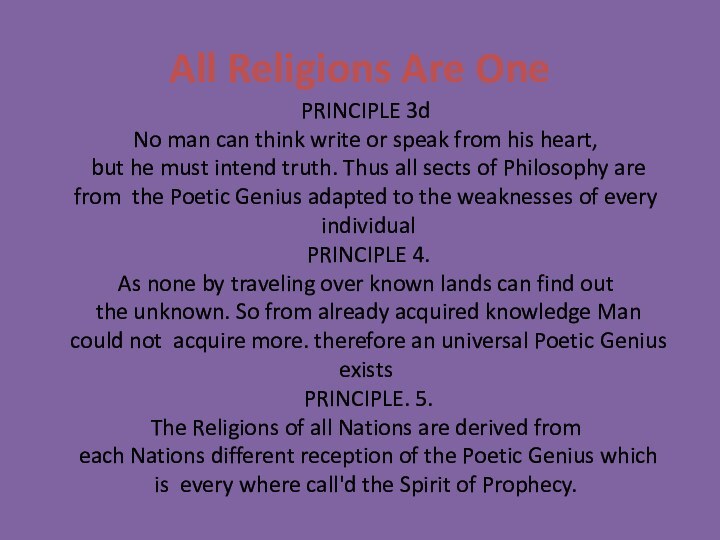
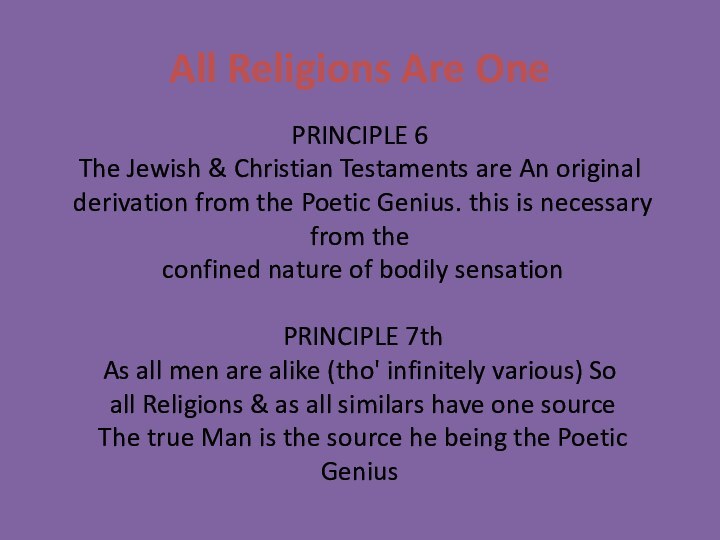
Слайд 2
The Son of Scotland
Walter Scott: “…the most extraordinary
of all the men…the most talented poet of Scotland”;
: “His person was strong and robust; his manners rustic, not clownish, a sort of dignified plainness and simplicity which received part of its effect perhaps from knowledge of his extraordinary talents. His features are presented in Mr Nasmyth's picture but to me it conveys the idea that they are diminished, as if seen in perspective.
Слайд 3
The Son of Scotland
Walter Scott: “I think his
countenance was more massive than it looks in any
of the portraits ... there was a strong expression of shrewdness in all his lineaments; the eye alone, I think, indicated the poetical character and temperament. It was large, and of a dark cast, and literally glowed when he spoke with feeling or interest. I never saw such another eye in a human head, though I have seen the most distinguished men of my time.”Ralph Waldo Emerson: “The people who care nothing for literature and poetry care for Burns”;
Слайд 4
Robert Burns, a representative of Pre-Romanticism
Interests in
folk literature
Exploration of emotions and feelings
Under the influence of
French Revolution, and be against the bondage of classicism Ushered a tendency that prevailed during the Romanticism:
To cultivate medieval literary legacy and embrace national culture;
To introduce daily expressions into poetic diction;
To pick up the life of common people as poetic subjects and show great sympathy
A natural lyrical ability (majority of his poems have been set to music) and his use of the common vernacular (dialect).
Слайд 5
Enduring Appeal
After his death Burns became an important
source of inspiration to the founders of both liberalism
and socialism.A cultural icon in Scotland and among Scots who have relocated to other parts of the world, celebration of his life and work became almost a national charismatic cult during the 19th and 20th centuries, and his influence has long been strong on Scottish literature.
Слайд 6
Collector of Folk Songs
Collected folk songs from across
Scotland, often revising or adapting them.
His poem (and
song) Auld Lang Syne is often sung at HogmanayScots Wha Hae (“Scots Who Have”) served for a long time as an unofficial national anthem of the country.
Слайд 11
My Heart’s in the Highlands
Farewell to the Highlands,
farewell to the North, The birth-place of Valour, the country
of Worth; Wherever I wander, wherever I rove, The hills of the Highlands for ever I love. My heart's in the Highlands, my heart is not here; My heart's in the Highlands a-chasing the deer; A-chasing the wild-deer, and following the roe, My heart's in the Highlands wherever I go.
Слайд 12
My Heart’s in the Highlands
Farewell to the mountains
high covered with snow; Farewell to the straths and green
valleys below; Farewell to the forests and wild-hanging woods; Farewell to the torrents and loud-pouring floods. My heart's in the Highlands, my heart is not here; My heart's in the Highlands a-chasing the deer; A-chasing the wild-deer, and following the roe, My heart's in the Highlands wherever I go.
Слайд 13
Philosophic and Love Lyrics
Other poems and songs of
Burns that remain well-known across the world today include:
O, Once I Lov'd A Bonnie Lass, The Poet's Welcome to his Bastart Wean, A Red, Red Rose, A Man’s A Man for A’That, To a Louse, To a Mouse, The Battle of Sherramuir, Ae Fond Kiss, John Barleycorn, Jolly Beggars, etc.
Слайд 14
John Barleycorn
There was three kings into the east,
Three
kings both great and high,
And they hae sworn a
solemn oathJohn Barleycorn should die.
They took a plough and plough'd him down,
Put clods upon his head,
And they hae sworn a solemn oath
John Barleycorn was dead.
But the cheerful Spring came kindly on,
And show'rs began to fall;
John Barleycorn got up again,
And sore surpris'd them all.
Слайд 15
John Barleycorn
The sultry suns of Summer came,
And he
grew thick and strong;
His head weel arm'd wi' pointed
spears,That no one should him wrong.
The sober Autumn enter'd mild,
When he grew wan and pale;
His bending joints and drooping head
Show'd he began to fail.
His colour sicken'd more and more,
He faded into age;
And then his enemies began
To show their deadly rage.
Слайд 16
John Barleycorn
They've taen a weapon, long and sharp,
And
cut him by the knee;
Then tied him fast upon
a cart,Like a rogue for forgerie.
They laid him down upon his back,
And cudgell'd him full sore;
They hung him up before the storm,
And turn'd him o'er and o'er.
They laid him out upon the floor,
To work him further woe;
And still, as signs of life appear'd,
They toss'd him to and fro.
Слайд 17
John Barleycorn
They wasted, o'er a scorching flame,
The marrow
of his bones;
But a miller us'd him worst of
all,For he crush'd him between two stones.
And they hae taen his very heart's blood,
And drank it round and round;
And still the more and more they drank,
Their joy did more abound.
John Barleycorn was a hero bold,
Of noble enterprise;
For if you do but taste his blood,
'Twill make your courage rise.
Слайд 18
John Barleycorn
'Twill make a man forget his woe;
'Twill
heighten all his joy;
'Twill make the widow's heart to
sing,Tho' the tear were in her eye.
Then let us toast John Barleycorn,
Each man a glass in hand;
And may his great posterity
Ne'er fail in old Scotland!
Слайд 20
Literary Themes
Republicanism (the French revolution influence) and radicalism
which he expressed covertly in Scots Wha Hae;
Scottish patriotism,
Scottish cultural identity;Anticlericalism, commentary on the Scottish Kirk of his time;
Class inequalities;
Gender roles;
Poverty;
Sexuality;
Beneficial aspects of popular socialising (carousing, whisky, folk songs, etc).
Слайд 21
Literary Style
His direct literary influences in the use
of Scots in poetry were Allan Ramsey and Robert
Fergusson. Burns's poetry also drew upon a substantial familiarity and knowledge of Classical Biblical, and English Literature, as well as the Scottish Makar tradition. Burns was skilled in writing not only in the Scots language but also in the Scottish English dialect. Some of his works, such as Love and Liberty (also known as The Jolly Beggars), are written in both Scots and English for various effects.
Слайд 23
Blake’s political views
Blake never tried to fit into
the world, he was a rebel innocently and completely
all his life.He was politically of the permanent left & mixed a good deal with the radicals like Thomas Paine and William Godwin.
Blake strongly criticized the capitalists' cruel exploitation, saying that the "dark satanic mills left men unemployed, killed children and forced prostitution."
He cherished great expectations and enthusiasm for the French Revolution, and regarded it as a necessary stage leading to the millennium predicted by the biblical prophets.
Слайд 24
Blake’s literary achievements
A symbolist, or a mystic;
many poems are obscure and can be interpreted only
symbolicallyHis lyric poetry displays the characteristics of the romantic spirit. (visual images rather than abstract ideas)
Natural sentiment and individual originality makes Blake a forerunner of the Romantic poetry of the 19th century.
Слайд 25
Blake’s life and career
got no education in
school
At 10, in Henry Par’s drawing
school and exposed
to Greek and Roman sculpture;
at 14, he worked as an engraver and learned how to make copperplates;
an artist with a style of his own: combined visual art with literature;
never prosperous in his lifetime
Слайд 26
Main works
Poetic collections:
Songs of Innocence (1789)
Songs of Experience (1794)
The Prophetic
Books (1789-1820)Rhythmic Prose
The Marriage of
Heaven and Hell (1790)
The French Revolution (1791)
Слайд 27
Blake’s Romantic Manifesto
To see a world in a
grain of sand,
And a heaven in a wild
flower,Hold infinity in the palm of your hand,
And eternity in an hour.
“The true Man is the source, he being Poetic Genius”
“He who sees the Infinite in all things sees God. He who sees the Ratio only sees himself only.”
Слайд 35
The Marriage of Heaven and Hell
The
belief that “good” and “evil” as defined by contemporary
religions are not really opposite, but different parts of one great whole.All Bibles or sacred codes have been the causes of the following Errors.
1. That Man has two real existing principles Viz: a Body & a Soul.
2. That Energy, call'd Evil, is alone from the Body, & that Reason, call'd Good, is alone from the Soul.
3. That God will torment Man in Eternity for following his Energies.
Слайд 36
The Marriage of Heaven and Hell
But
the following Contraries to these are True
1. Man has
no Body distinct from his Soul for that call'd Body is a portion of Soul discern'd by the five Senses, the chief inlets of Soul in this age.2. Energy is the only life and is from the Body and Reason is the bound or outward circumference of Energy.
3. Energy is Eternal Delight.
Слайд 37
The Laocoön
Good & Evil are Riches
& Poverty a Tree of Misery propagating Generation
& DeathWhat can be Created Can be Destroyed Adam is only The Natural Man & not the Soul or Imagination
The Eternal Body of Man is The IMAGINATION. God himself that JESUS We are his Members The Divine Body| It manifests itself in his Works of Art (In Eternity All is Vision) All that we See is VISION from Generated Organs gone as soon as come Permanent in The Imagination; considered as Nothing by the NATURAL MAN
Слайд 38
The Laocoön
…
The Old & New
Testaments are the Great Code of Art
Jesus & his
Apostles & Disciples were all Artists
Their Works were destroyd by the Seven Angels of the Seven Churches in Asia. Antichrist ScienceSCIENCE is the Tree of DEATH ART is the Tree of LIFE GOD is JESUS
….
Prayer is the Study of Art Praise is the Practise of Art Fasting &c. all relate to Art ….
Слайд 39
The Laocoön
….
Practise is Art If
you leave off you are Lost
A Poet a Painter
a Musician an Architect: the Man
Or Woman who is not one of these is not a Christian
You must leave Fathers & Mothers & Houses & Lands if they stand in the way of ARTThe unproductive Man is not a Christian much less the Destroyer
Слайд 40
All Religions Are One
The Voice of
one crying in the Wilderness
…
PRINCIPLE 1st
That
the Poetic Genius is the true Man. and that
the body or outward form of Man is derived from the Poetic Genius. Likewise that the forms of all things are derived from their Genius. Which by the Ancients was call'd an Angel & Spirit & Demon. PRINCIPLE 2d
As all men are alike in outward form, So (and with the same infinite variety) all are alike in the Poetic Genius
Слайд 41
All Religions Are One
PRINCIPLE 3d
No
man can think write or speak from his heart,
but he must intend truth. Thus all sects of Philosophy are from the Poetic Genius adapted to the weaknesses of every individual PRINCIPLE 4.As none by traveling over known lands can find out the unknown. So from already acquired knowledge Man could not acquire more. therefore an universal Poetic Genius exists PRINCIPLE. 5.
The Religions of all Nations are derived from each Nations different reception of the Poetic Genius which is every where call'd the Spirit of Prophecy.
